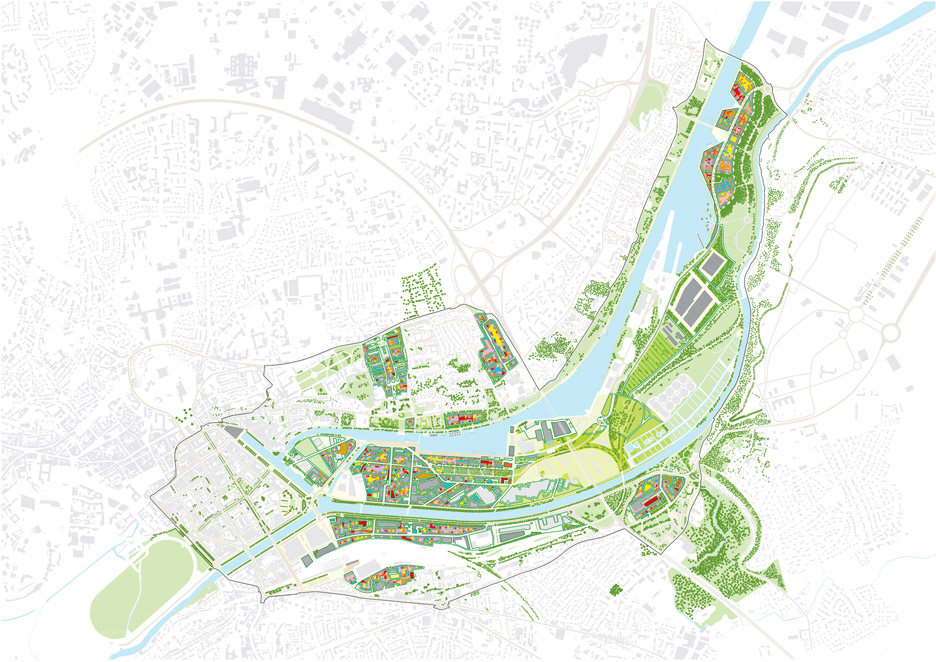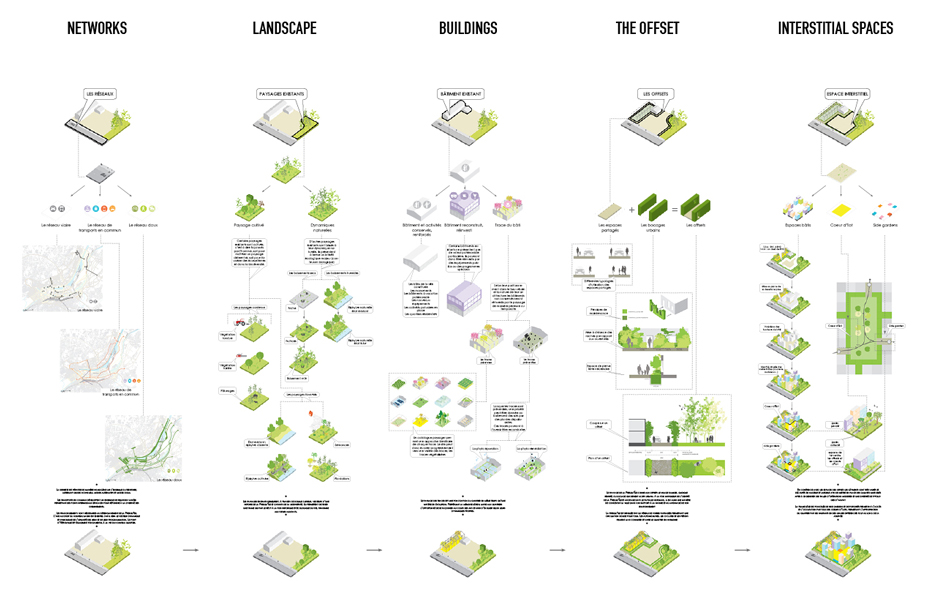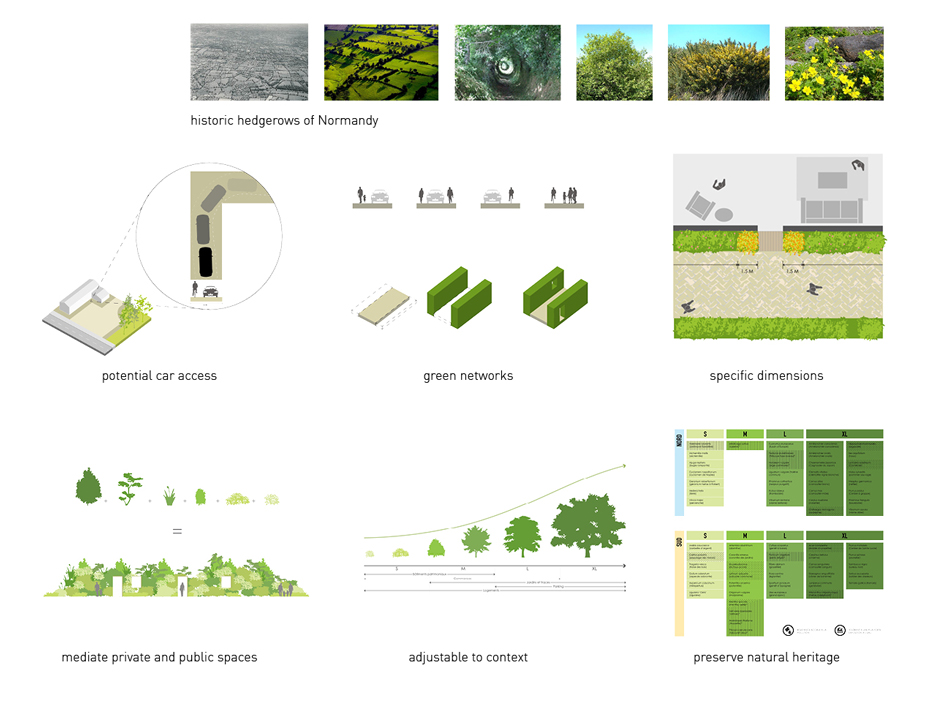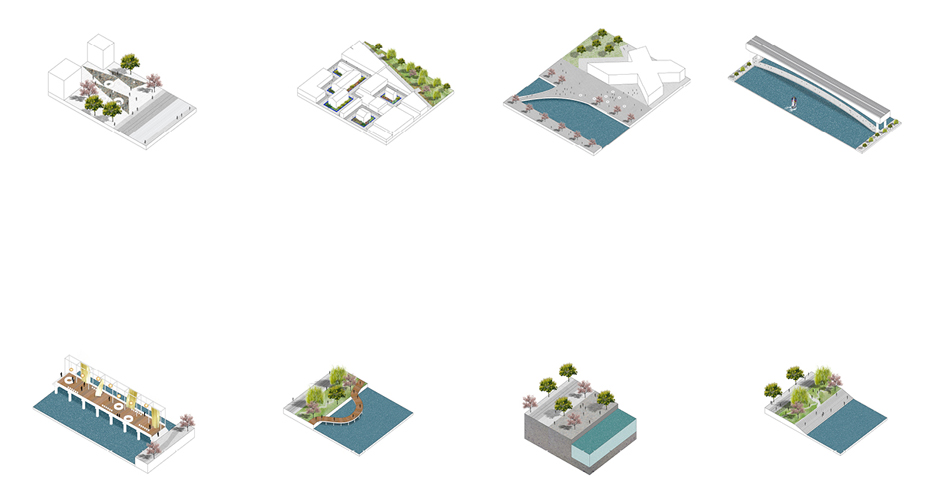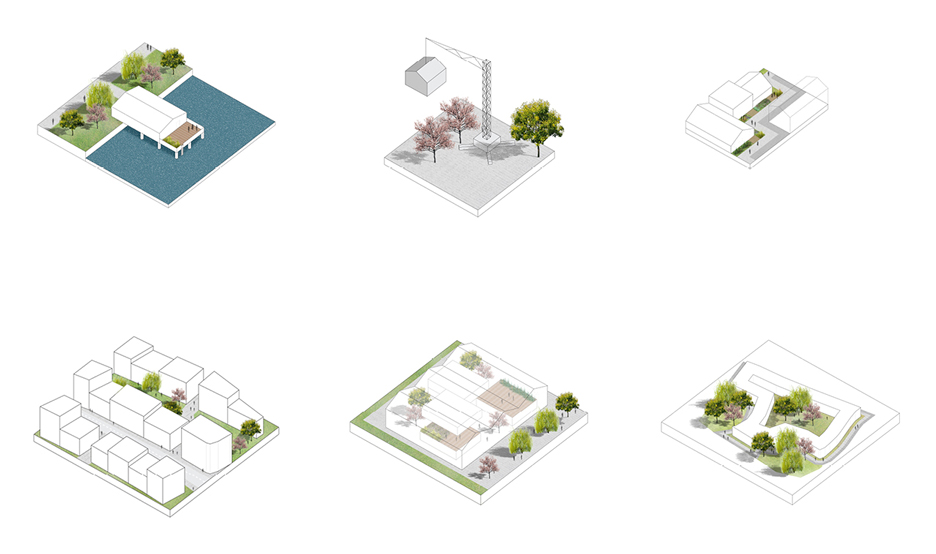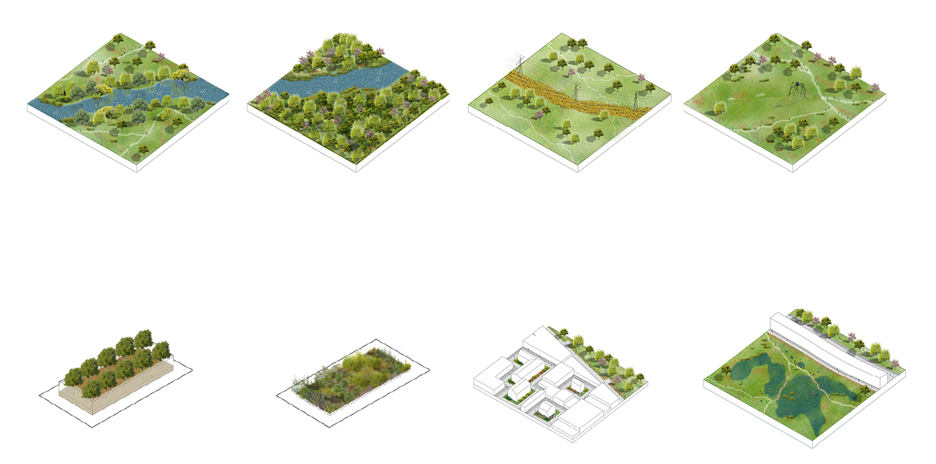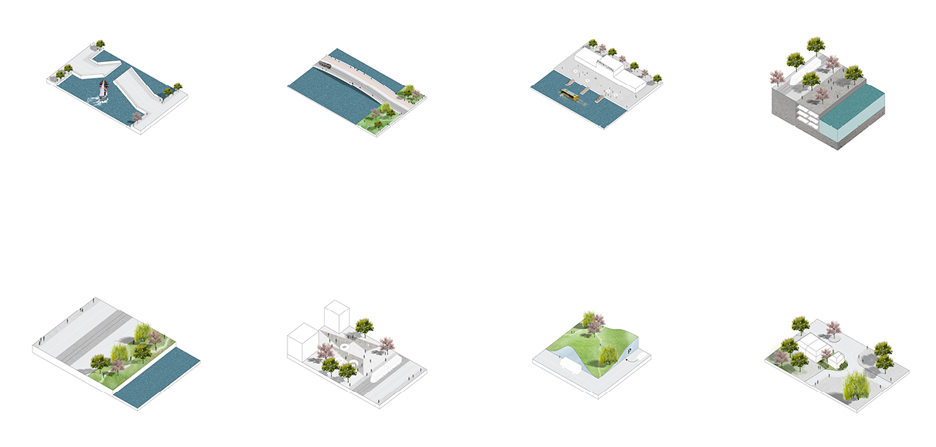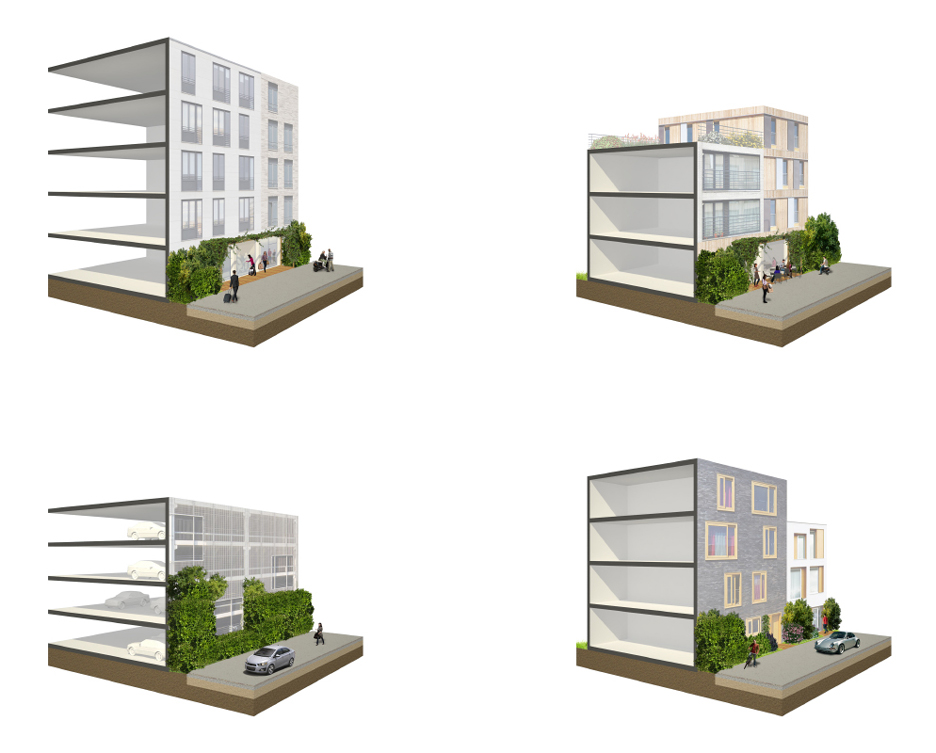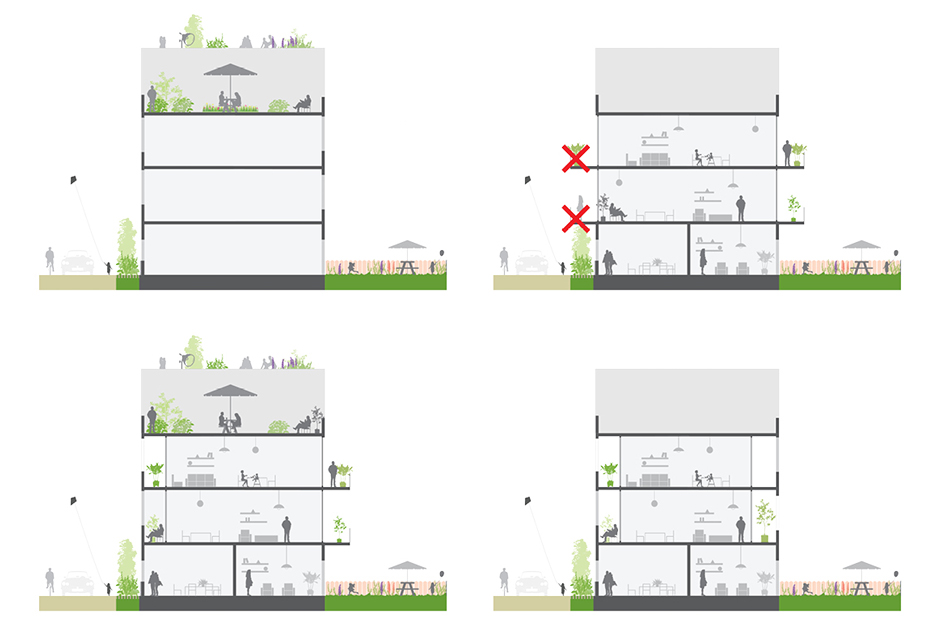MVRDV to transform 600 hectares of historic city in Normandy
Rotterdam firm MVRDV has revealed plans to overhaul 600 hectares of Caen, the French city where William the Conqueror built his castle, creating housing, offices and numerous leisure attractions (+ slideshow).
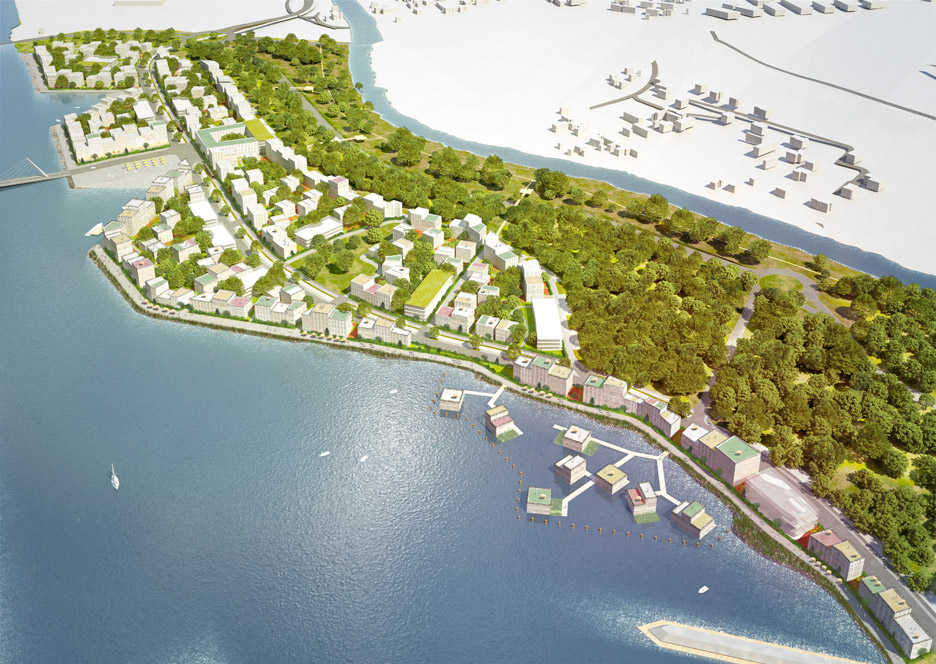
MVRDV is already two years into its La Grande Mosaïque project, which aims to remodel a huge chunk of Caen, the capital of northern France's Lower Normandy region.
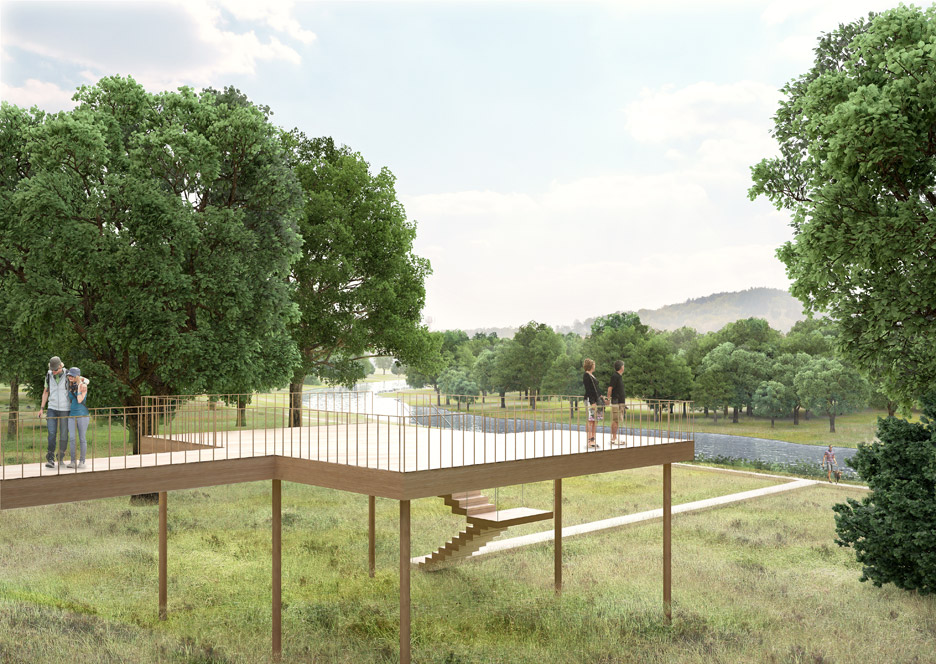
The firm plans to tackle issues created by Caen's de-industrialisation – transforming the expansive area extending down from the city centre to a peninsula sandwiched between the river Orne and a canal running into the sea.
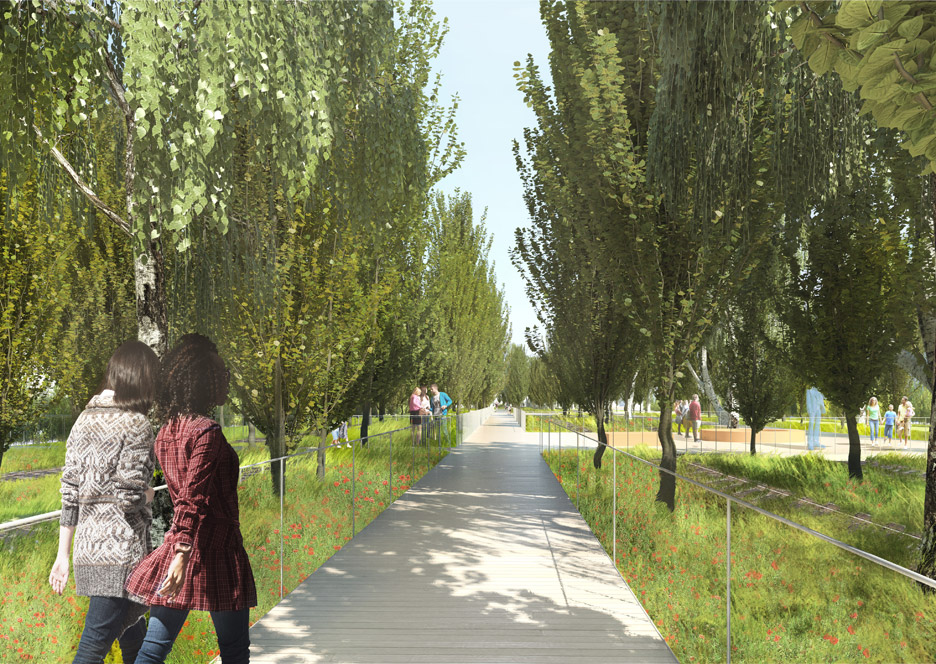
The architects plan to create housing, offices, mixed-use buildings, public spaces and infrastructure, using an urban-planning approach inspired by the region's historic hedgerow landscape.
Studio co-founder Winy Maas described the project as "aiming for a beautiful urban valley abundant with hedges in the heart of Normandy".
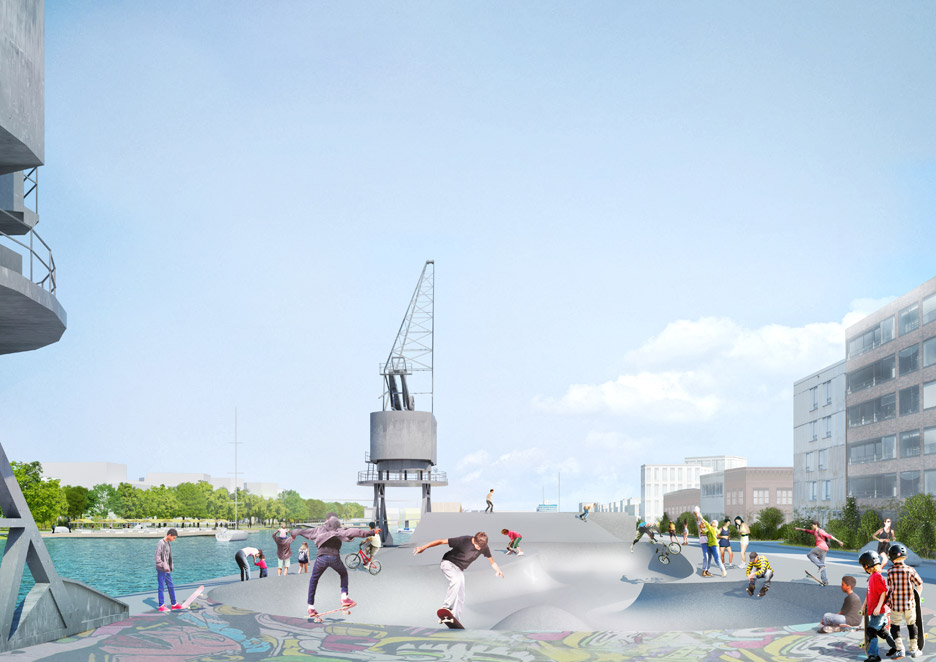
"The masterplan looks to revitalise the area which was formerly home to the heavy industries of Caen that left the local environment scarred by years of pollution," said MVRDV in a statement.
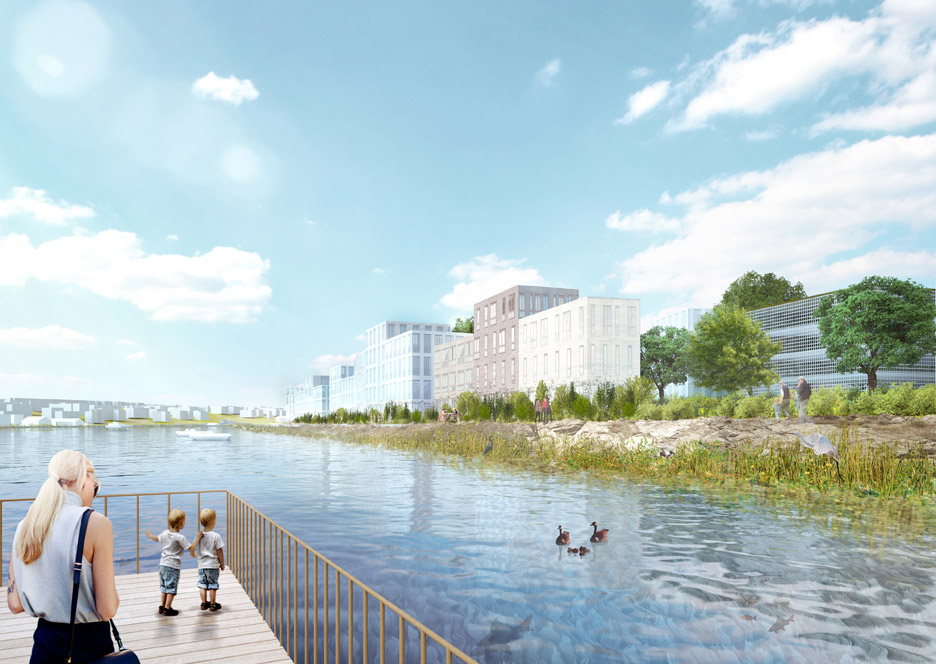
"The project is highly progressive in its scope, ambition and context," it added.
"Not only does it integrate and respect the historic nature of the area but it also unites the city and its neighbouring towns, Hérouville Saint-Clair and Mondeville, and their vision for a development plan built up of a series of direct interventions."
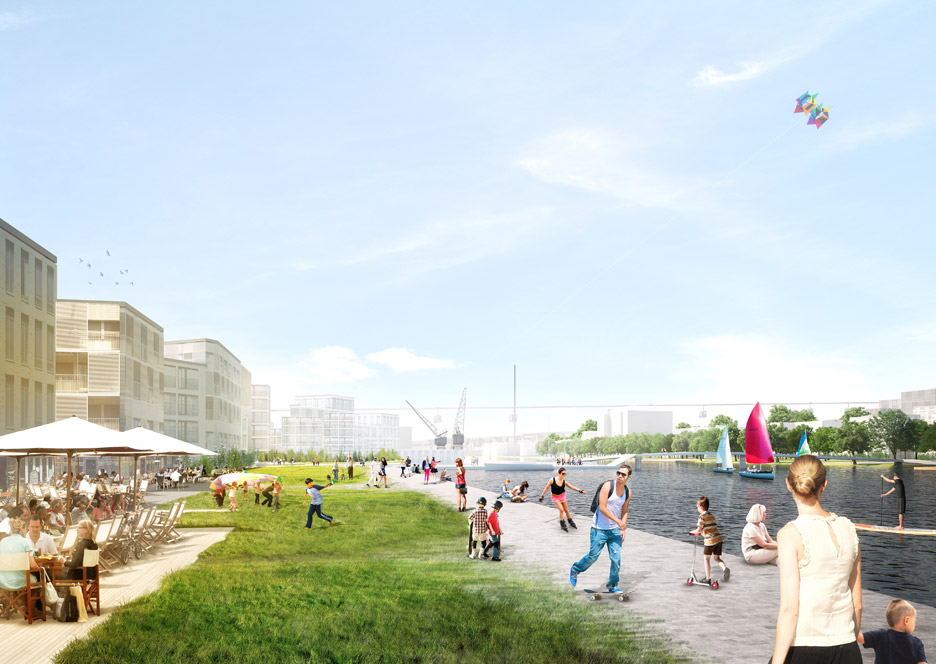
Caen features many 11th century structures built during the reign of William the Conqueror, including the Château de Caen, although much of its original fabric was destroyed during the Battle of Normandy in 1944.
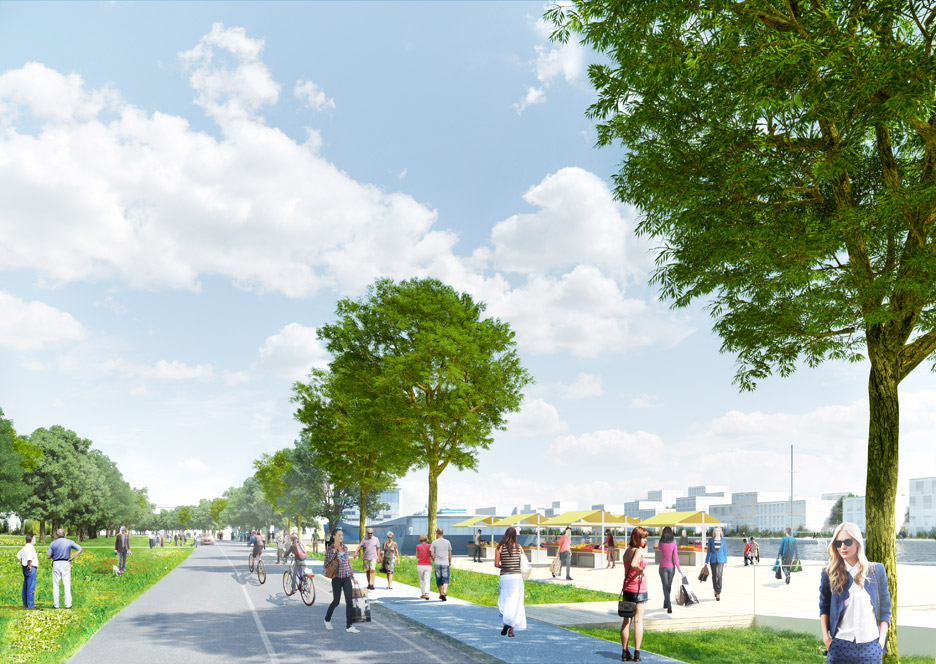
MVRDV's proposal focuses on the relationship between old and new – intending to create a network of secondary streets and community spaces that help to tie different neighbourhoods together.
It was this that led the firm to the hedgerow-inspired planning strategy. The firm refers to this approach as "the offset".
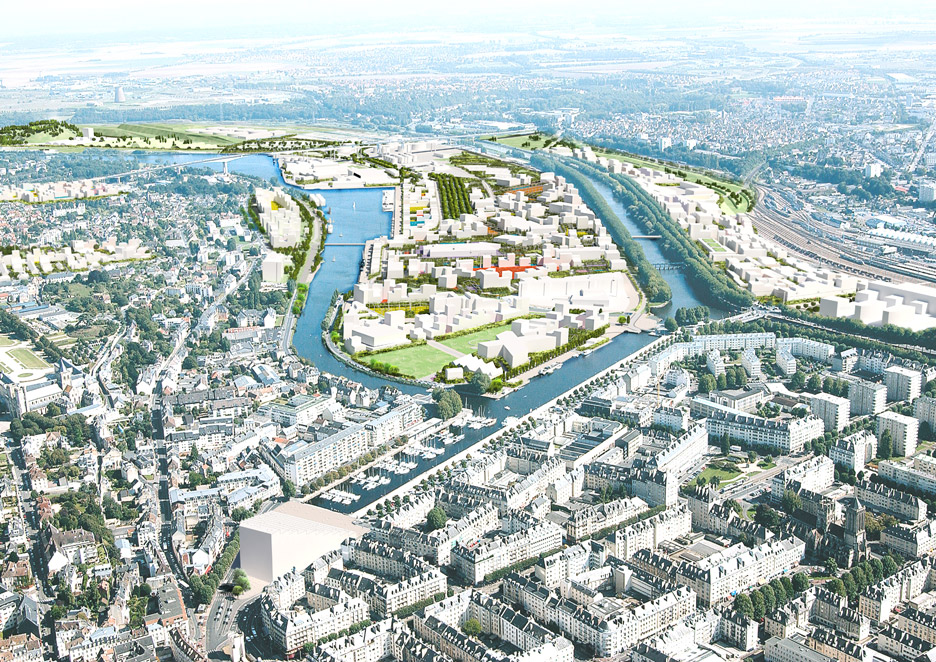
"The offset takes the form of an urban version of the 'bocage', the historic hedgerows of Normandy, and gives back to the area the natural heritage that was taken from it during the industrial era; whilst at the same time it provides a base for future interventions to maintain the consistent poetry of the area," said MVRDV.
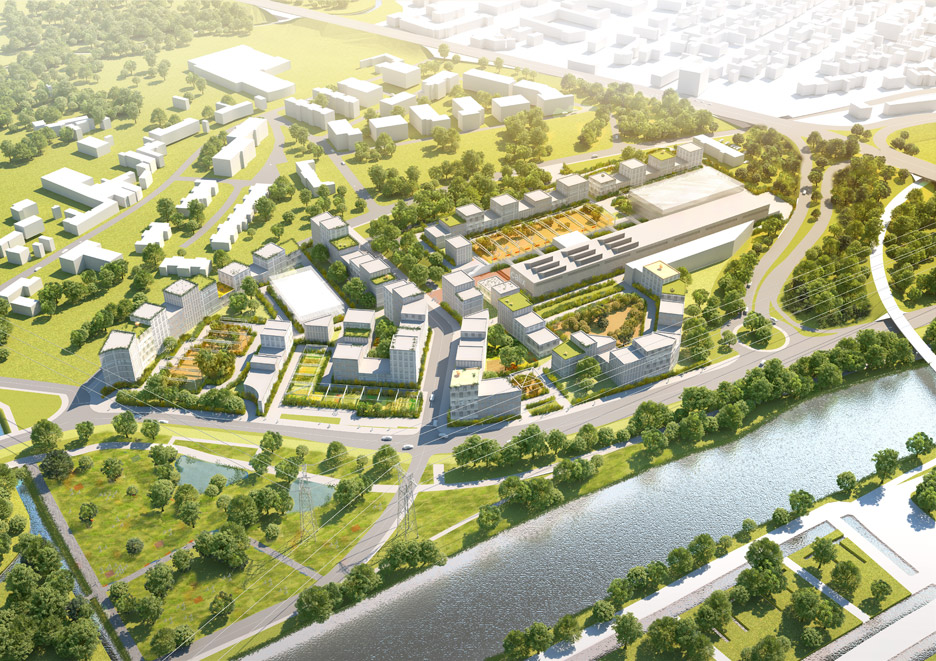
Some of the projects in the masterplan have already been delivered, but MVRDV presents its overall masterplan for the first time this week. It is on show at Le Pavillon in the old city port until 13 March 2016.
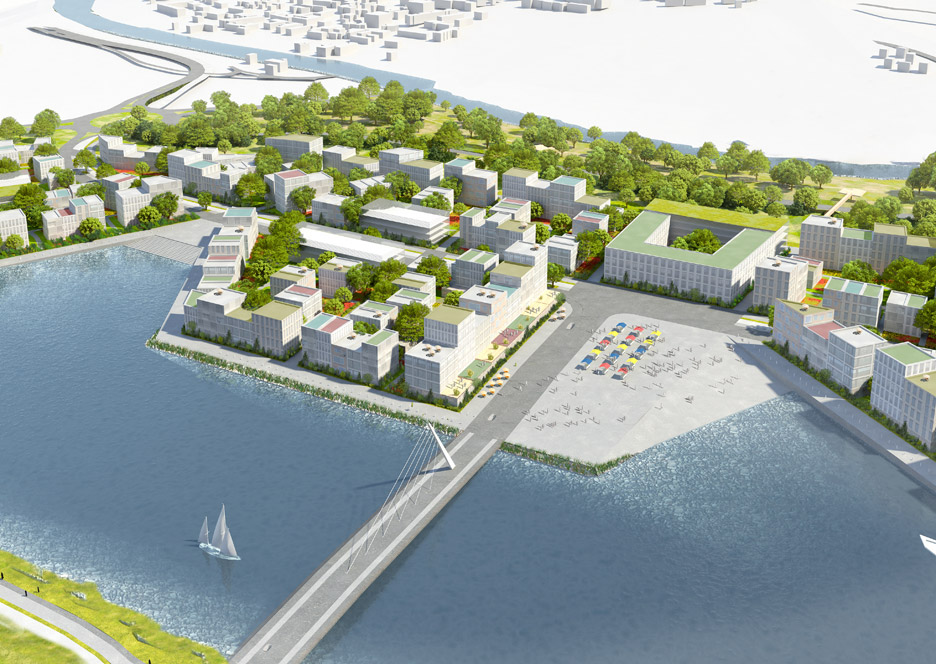
The firm is also working on a number of other large-scale projects, ranging from a new business district in Shanghai to a manmade peninsula covered in gardens for the World Horticultural Expo in the Netherlands.
Collaborators on La Grande Mosaïque include architect partner Diagram Architecture, landscape firm Territoires, urban design agency Pro Devéloppment, infrastructure specialist Egis, sociologist Philippe Cabane and model maker Made by Mistake.
